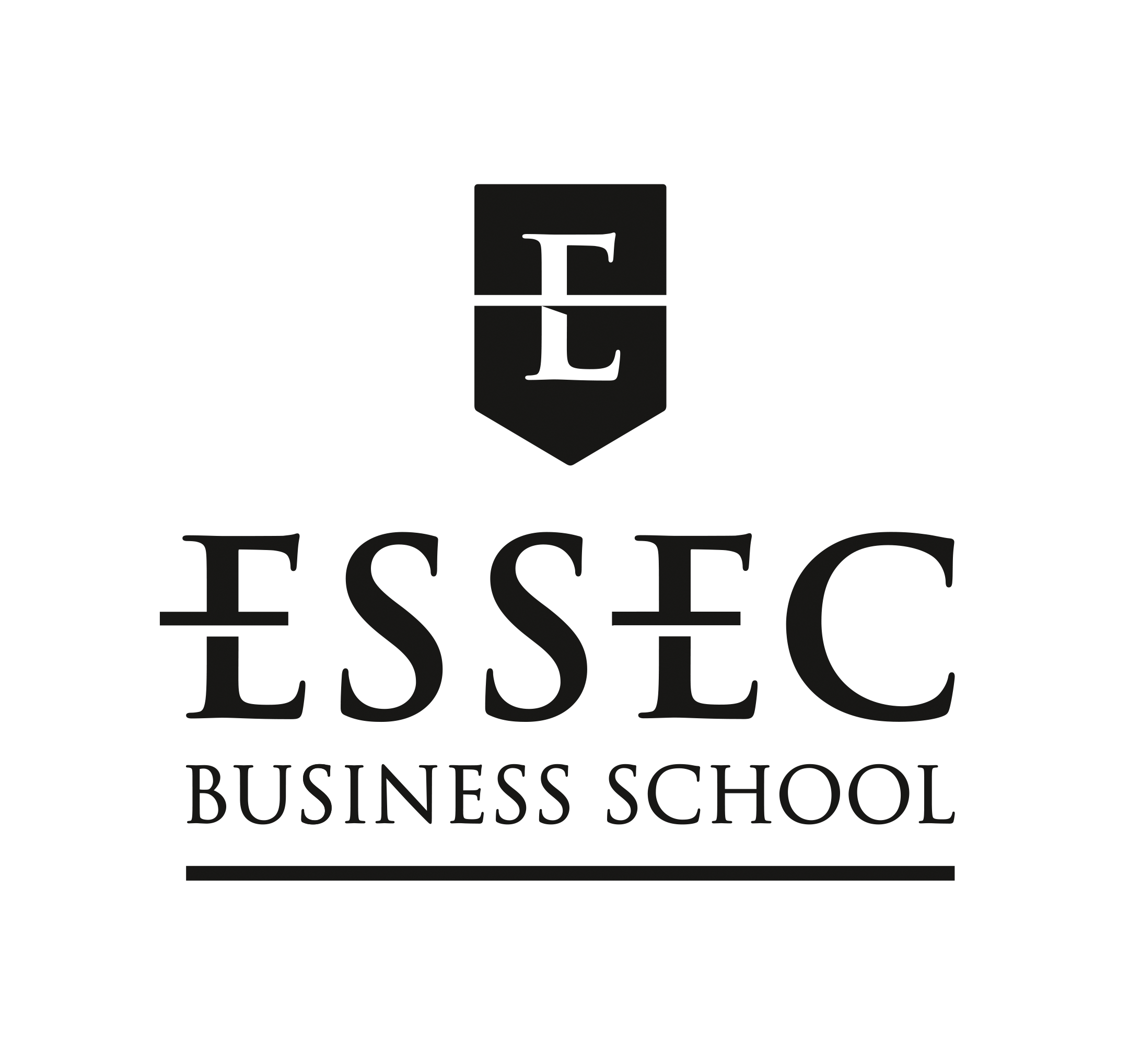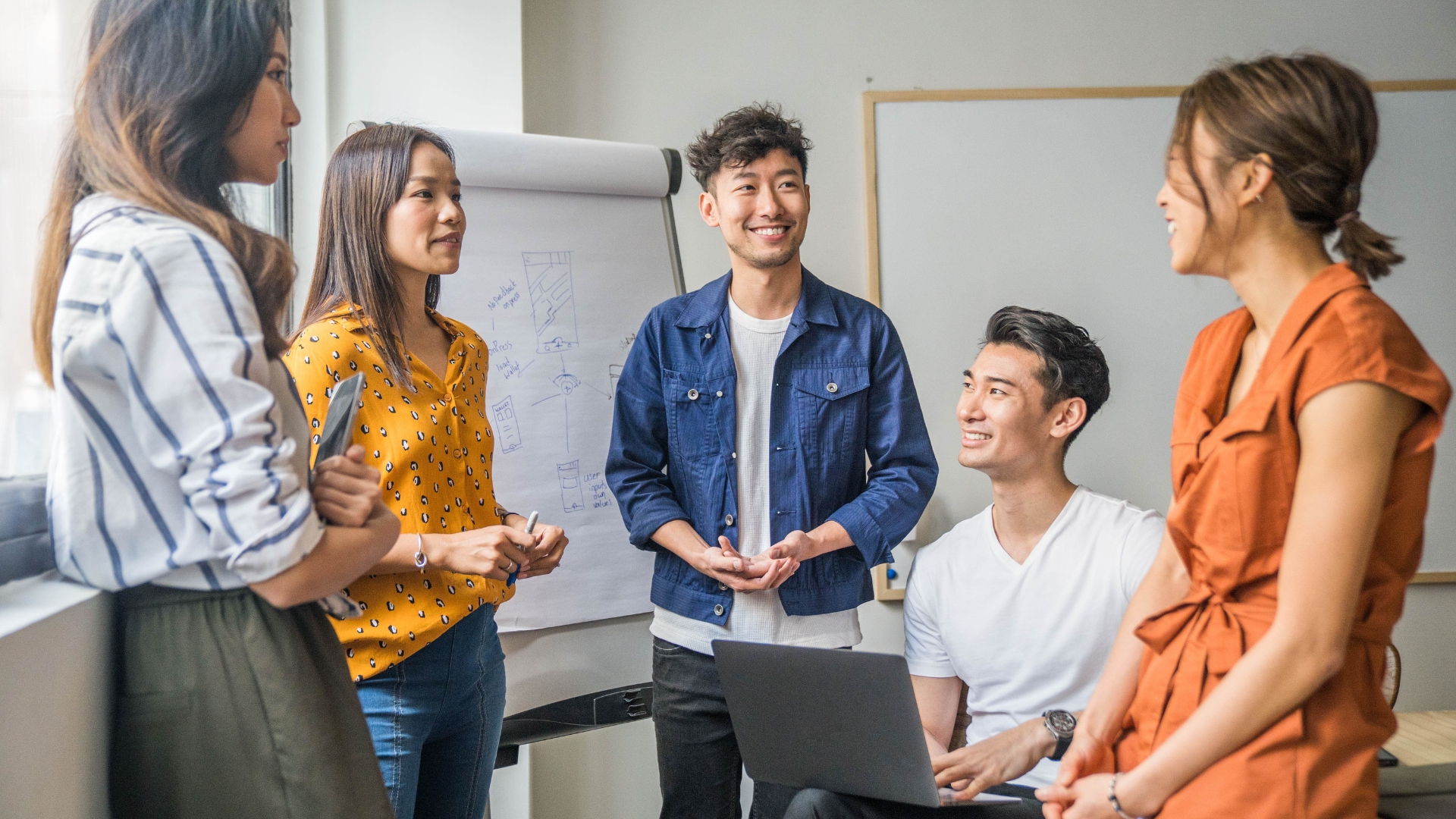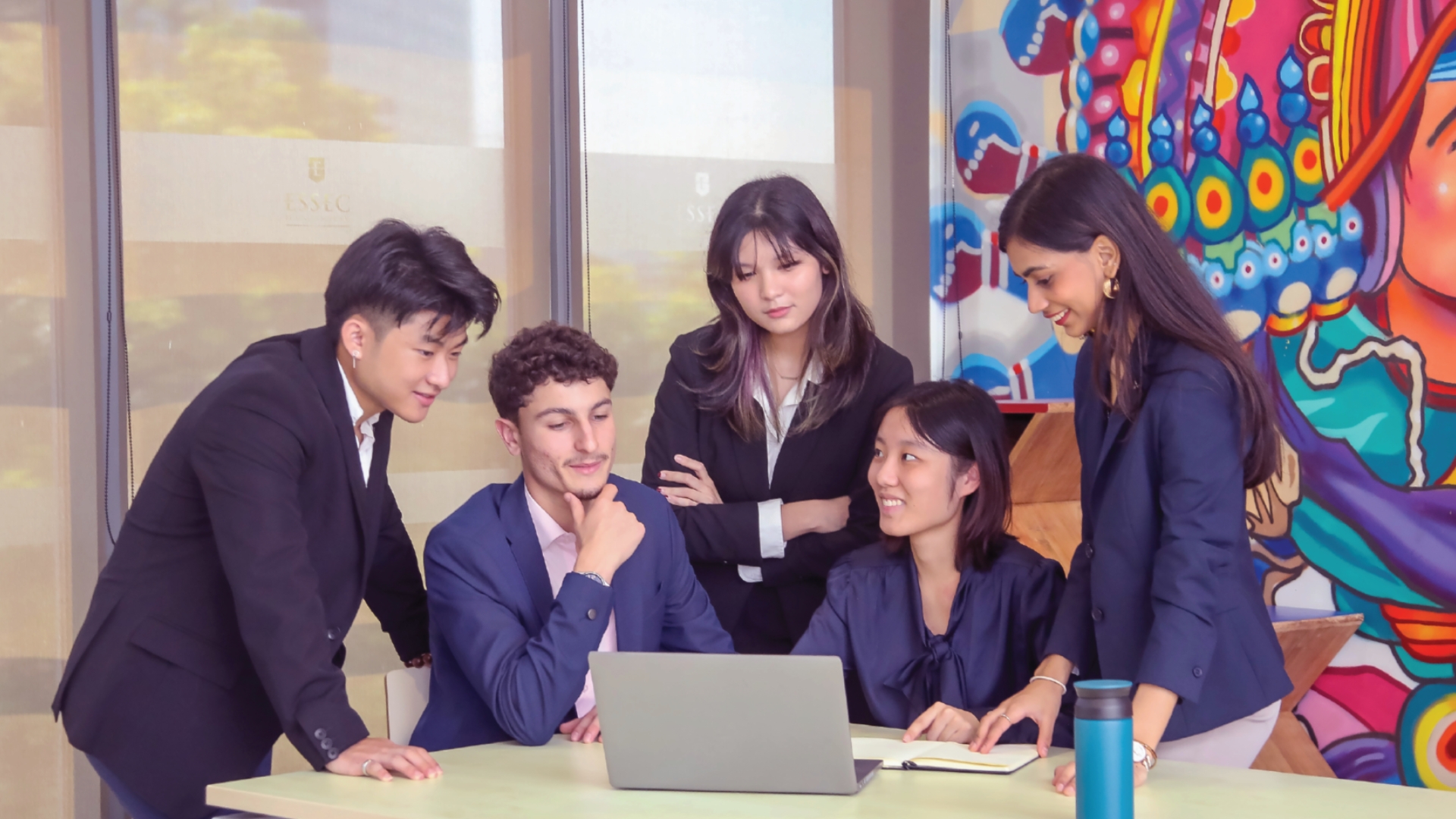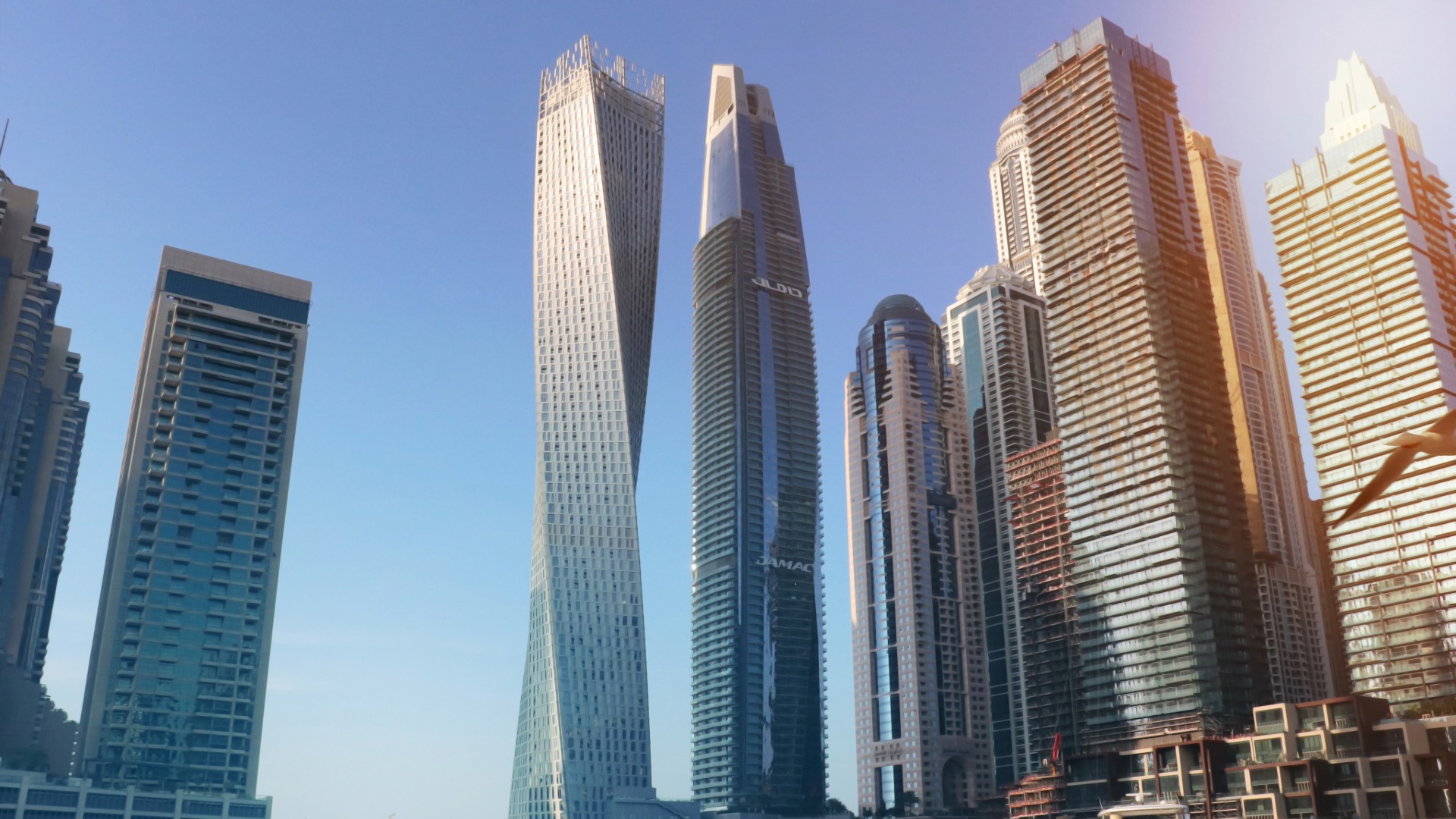It is one thing to be able to laud the importance of sustainability, but a whole other to devise actionable business plans that incorporate eco-friendly principles, Julia Tamayo, a fourth-year student from Ateneo de Manila University, shares.
This ability to translate ideas into reality is one of the biggest takeaways she and her team of classmates, Charlotte Dino, Evonne Hayco, Angela Venturina, and Loure Vergara, gained from ESSEC Business School’s inaugural Business Case Competition in the Philippines.
The Business Case Competition
The ESSEC Business Case Competition was the first time ESSEC brought its signature learning-by-doing approach from its Asia-Pacific campus grounds.
“We wanted students to be able to learn new methodologies through the ESSEC coaching system and through interactions with jury members who could provide immediate and direct feedback,” Anne-Flore Maman Larraufie, Academic Director of the Master in Strategy Management and International Business (SMIB) program explains.
A case competition was chosen for its similarity to the case study approach commonly used for recruitment—and to stay aligned with global trends, Larraufie authored a story where students would have to apply concepts revolving around digitalization, entrepreneurship, and sustainability to the world of hospitality.
Over three months, 40 teams from top schools like Ateneo de Manila University, University of the Philippines Diliman, and De La Salle University were whittled down to eight—and Julia’s team eventually emerged champion.
The Challenge of Bringing Ideas into Reality
But the path to victory came with obstacles. “When we first encountered the case, we found it very comprehensible—and that made us jump into it thinking it was easy,” Charlotte explains.
After the research phase, the team was confident that they had found “the sweet spot between luxury and sustainability,” Julia says. “We believed it was about providing authenticity or superior customer service.”
When translating these insights, though, their mentor, SMIB alumni Vincent Emad, Product Manager at ObvioHealth, was hesitant—sending them into a flurry to reevaluate their plans.
The Mind and Mettle to Overcome
“Thankfully, Vincent was accommodating and offered us further consultations to get feedback on how we had integrated his initial recommendations,” Julia recalls.
Investing in an elaborate series of interviews and surveys early on in their process gave the team a solid foundation for tweaking their ideas.
Their winning solution? An app that offers travelers a personalized, authentic experience in the Philippines.
Guided by their mentor’s advice and design-thinking principles, the team developed different traveler personas and refined various prototypes. It mapped these in wireframes so the judging panel could visualize the user experience.
Their initiative and rigor caught the eye of the judges—which, coupled with their passion, sealed the deal for their victory.
For the team, the gains go beyond the prize to encompass the experience of working with ESSEC Asia-Pacific and the valuable lessons they will take into their futures.
This is the actual value that business case competitions bring to students, Julia shares. “It’s a different way to apply what you’ve learned in the classroom—more challenging but rewarding!”
RELATED POSTS
Students from Southeast Asia on Dean’s List
Three Southeast Asian Global Bachelor of Business Administration (BBA) students—Éloïse Le, Janice Augustine, and Olivia Gunawan—achieved Dean's List…
What ESSEC SMIB Students Learned from Vietnam’s Top Companies in Just 5 Days
ESSEC Master in Strategy & Management of International Business (SMIB) students spent five impactful days in Ho Chi Minh City, gaining real-world…
Bridging Tomorrow: ESSEC-CentraleSupélec’s Revolutionary AI and Management Bachelor
Innovative program combines elite business education with cutting-edge engineering at Europe's prestigious institutions.
Specialized Prestigious Tracks: Elevating Global Business Excellence at ESSEC
ESSEC's Global BBA offers elite international tracks that transform students through immersive cross-continental learning experiences, prestigious…
The Asian Strategy Challenge: Real-World Consulting Experience
ESSEC's Asian Strategy Challenge transforms SMIB students into strategic consultants through intensive, real-world business problem-solving with…
Global Exposure: The Impact of Study Trips on SMIB Students
SMIB study trips to Bangkok, Dubai, and other global business centers provide transformative international exposure, developing cross-cultural…
